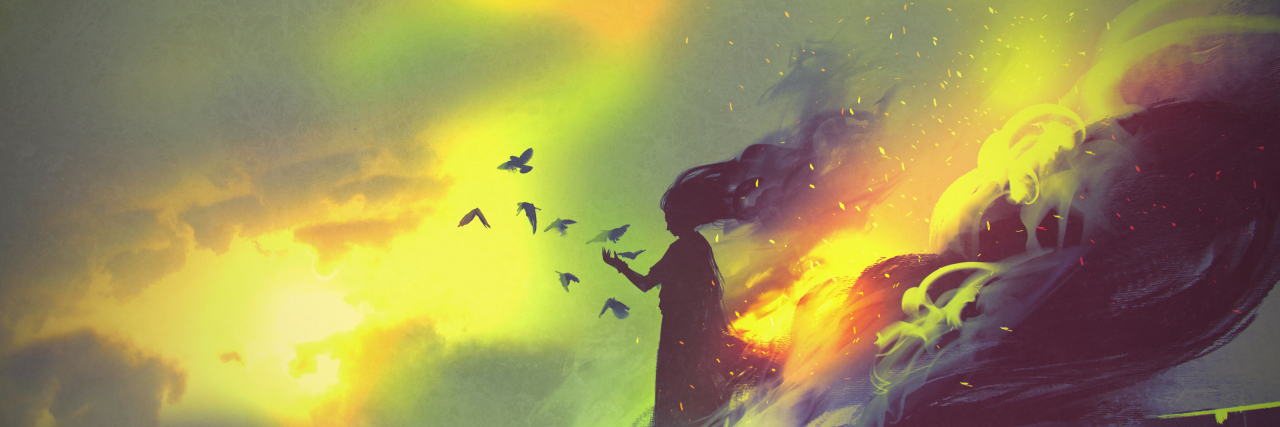Masking or camouflaging is something just about everybody does on a daily basis. Depending on where you are or who you are with, you act a certain way. People with autism have to do this on a much deeper level. We live in a world that was not designed for us, so we learn to “hide” the things that make us seem different.
I learned how to keep my autism hidden in public, even before I was diagnosed. In fact, one of the reasons it took so long to diagnose me was because in school, at least until middle school when I was diagnosed, I was able to camouflage exceedingly well. I could go through an entire day without displaying autistic or different behavior.
Home was another story. By the time I got home from school, I would be exhausted, physically and mentally, from masking all day. Bear in mind, I was not able to verbalize these feelings when I was a child. I would have intense meltdowns that affected my entire family very negatively. But home was the only place I felt safe enough to unmask and let out all the emotions and feelings I had bottled up during the day.
Up until very recently, I forced myself to mask completely in public and even somewhat at home, if there were people around me. I refused to stim and got very embarrassed to be caught doing it. When out in the world, my goal was to look as though I was neurotypical. It got to the point where I would have a panic attack if I said the wrong thing or made the wrong facial expression.
I became so self-aware when I was camouflaging. I could literally feel the weight of holding in my emotions and meltdowns. My body hurts and I have trouble breathing. My body feels heavy and underwater. When I’m masking to this degree, I feel like I’m on auto-pilot. I feel so close to snapping. I’m just being stretched and stretched and I’ve managed to bounce back every time, but a rubber band can only stay intact through so much stretching and pulling. It’s a scary to think what might happen if the rubber band actually breaks.
That is called autistic burnout and it is a very scary state of mind. For me, autistic burnout occurs when I just can’t stand being autistic anymore. The thought of messing up socially, even something minuscule that nobody else will notice, makes me hate myself during burnout phases. I feel worthless and small. I have even felt suicidal. Masking is important and useful in small doses, but when you mask constantly, it can cause severe mental turmoil.
Burnout will come and go. I feel wonderful today, but that could change tomorrow. Having a plan of action before you reach a burnout phase is very important, especially because you can’t always think straight when burnout occurs. I have a list of people I can call and talk to and a list of activities to try out when I feel this way.
Letting myself act more autistic has been absolutely freeing. I feel comfortable enough in my own self to act the way that feels best to me. I embrace my echolalia and now I feel free to sing and repeat phrases that sound pleasant to me. I flap way more now, pretty much in every conversation. And the more awkward I feel, the harder I flap. But I don’t feel self-conscious about it anymore. In fact, I think it’s kind of endearing. I have sensory toys everywhere and I am not afraid to use them. If someone wants to stare, let them.
It has taken me 25 long years to be this comfortable with displaying my autism and I still have a ways to go. But I’ll do it with my mask off and my hands flapping.
Getty image by Grandfailure.

